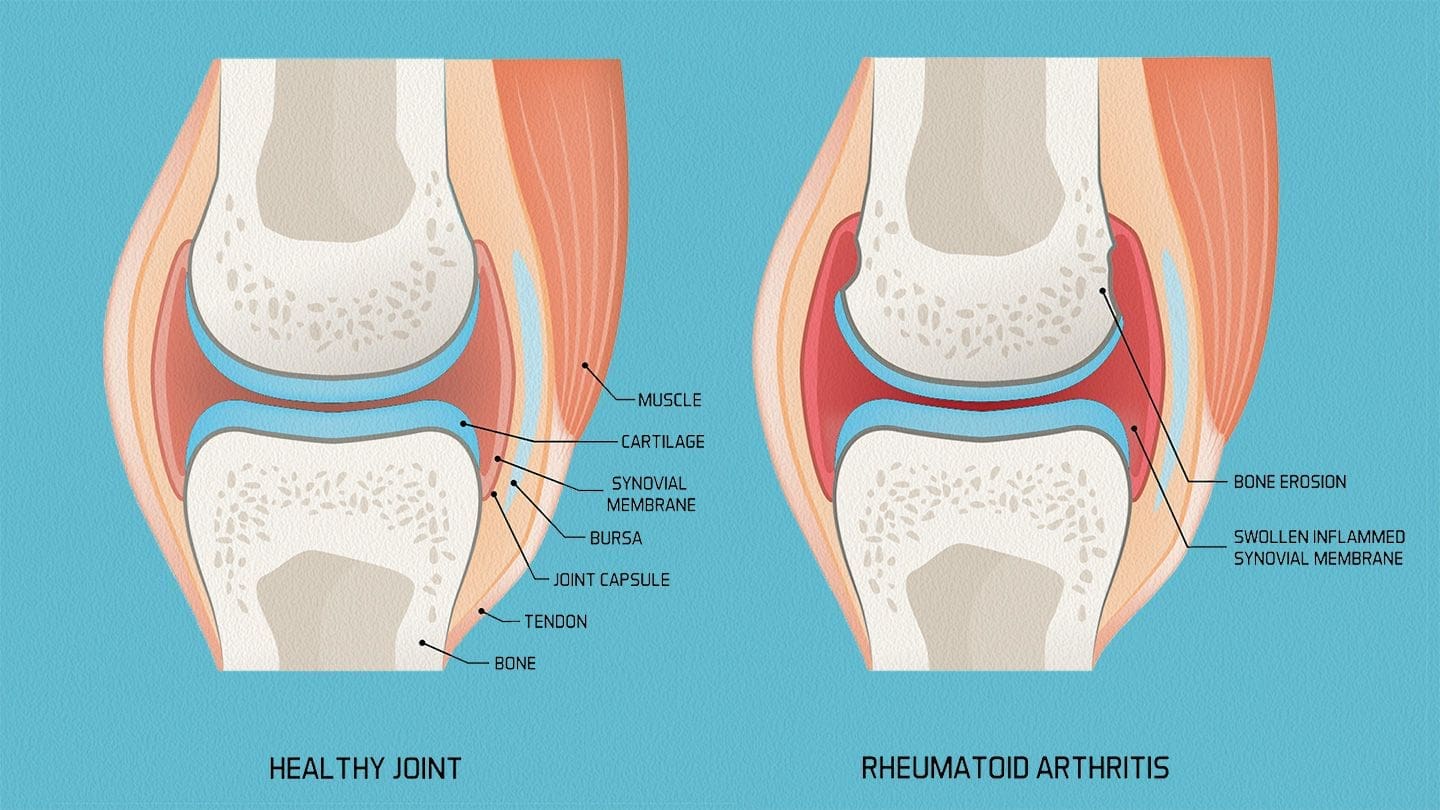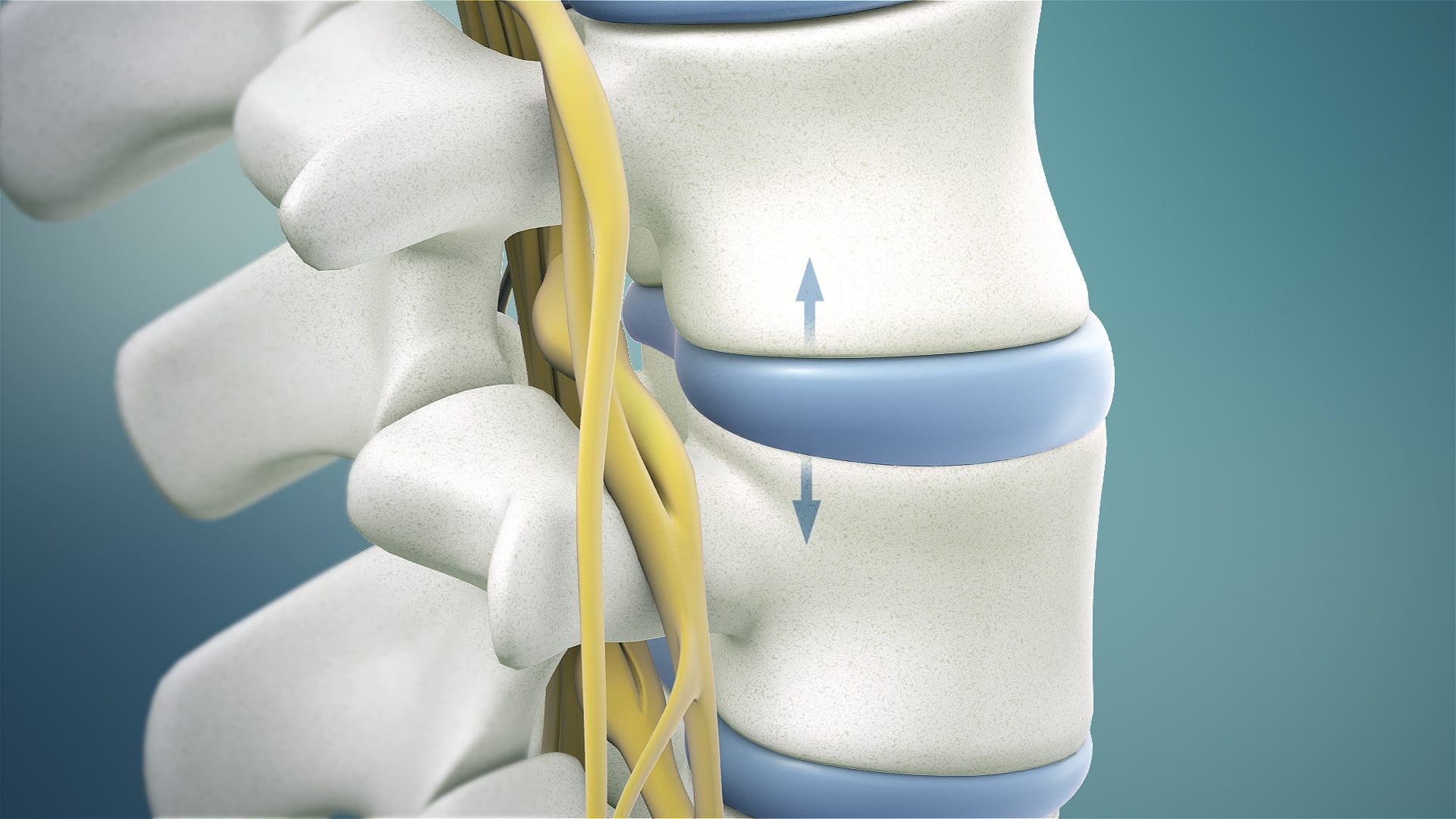Can spinal decompression treat individuals with chronic low back pain to reduce joint arthritis and strengthen the surrounding muscles to restore lumbar mobility?
Table of Contents
Introduction
When many individuals are dealing with pain in their lumbar region, more often than not, they believe that it’s the surrounding muscles that protect the spine that is being affected. However, that is only half of the problem. Do you or your loved ones often feel a warm sensation within your lower back, hips, and knees that radiates pain within your joints? Well, joint pain can correlate with low back pain in its chronic state. Since the body and spine can degenerate over time, it can cause the joints to wear and tear while rubbing against each other, causing joint arthritis to develop. When arthritic pain is associated with chronic low back pain, it can lead to overlapping risk profiles that can lead to a life of disability and make the individual miserable. Many pain-like symptoms correlating with chronic low back pain can develop over time and cause mobility and stability problems within the body. Fortunately, many non-surgical treatments can reduce the progression of joint arthritis and alleviate chronic low back pain. Today’s articles examine the correlation between joint arthritis and chronic low back pain while taking a look at how non-invasive treatments like spinal decompression can not only reduce chronic low back pain associated with joint arthritis but also restore lumbar mobility. Additionally, we work hand-in-hand with certified medical providers who incorporate our patient’s information to treat and reduce the progression of joint arthritis associated with low back pain. We also inform them that spinal decompression can help restore lumbar mobility while enhancing muscle strength back to the lumbar region. We encourage our patients to ask profound questions while seeking education from our associated medical providers about their pain-like issues. Dr. Alex Jimenez, D.C., incorporates this information as an educational service. Disclaimer
Joint Arthritis & Chronic Low Back Pain
Do you often experience stiffness in the morning that seems to go away after a few hours? Do you feel aches and pains at work, either at the desk or the requires heavy objects? Or do you feel your joints ache constantly that you are not getting enough sleep at night? These pain-like scenarios are associated with joint arthritis, which can develop into chronic low back pain. Many people know that the lumber spine and the lower extremities will experience high mechanical stress when the body is in an upright position without pain. As the lumbar spine and lower extremities begin to go through repetitive motions over time, that can cause the ligaments and surrounding muscles to have microtrauma tears, resulting in the development of joint arthritis, which can lead to inflammatory effects. (Xiong et al., 2022) Now inflammation in the body is beneficial and harmful depending on the severity within the affected area. Joint arthritis, especially spondylarthritis, is part of inflammatory diseases that affect the joint and the spine and can have various clinical manifestations. (Sharip & Kunz, 2020) The symptoms of joint arthritis include inflammatory pain in the affected area, joint stiffness and swelling, and muscle weakness. When dealing with inflammatory effects associated with joint arthritis, it can cause them to have a decreased quality of life, increase mortality, and become an economic burden. (Walsh & Magrey, 2021)

Now how does joint arthritis be associated with low back pain? When individuals start to make repetitive motions to their lumbar spine, it can lead to abnormal changes to the intervertebral discs. When unwanted pressure begins to compress the intervertebral disc constantly, it can cause wear and tear on the disc, causing them to crack and allowing the annular nociceptors to become over-sensitized. (Weinstein, Claverie, & Gibson, 1988) The affected disc then aggravates the surrounding nerve roots and muscles, causing low back pain. When individuals do their everyday normal, factors that cause degenerative changes to the intervertebral discs can lead to chronic low back pain. (Vernon-Roberts & Pirie, 1977) To that point, chronic low back pain associated with joint arthritis can become a chronic issue if not treated right away.
Arthritis Explained- Video
When reducing the effects of chronic low back pain associated with joint arthritis, many individuals seek treatments to relieve their pain-affected areas with a positive outcome. Non-surgical treatments could be the answer, combined with other therapies to reduce chronic low back pain. (Kizhakkeveettil, Rose, & Kadar, 2014) Non-surgical treatments can be customizable to the individual’s pain while being cost-effective. Many people with arthritic joints can benefit from non-surgical treatments as pain specialists like massage therapists and chiropractors can use various techniques to stretch out the affected muscles, increase the joint’s ROM (range of motions) and realign the body out of misalignment to promote the body’s natural healing process. The video above gives an overview of how arthritis can affect the joints, be associated with low back pain, and how these treatments can alleviate its symptoms through various techniques.
Spinal Decompression & Chronic Low Back Pain

Spinal decompression is a non-surgical therapy treatment that can help many individuals with chronic low back pain. Spinal decompression uses gentle traction on the lumbar spine to pull the spine, allowing the fluids and nutrients to flood back to the affected area and help the body naturally heal itself. When individuals start incorporating spinal decompression for their chronic low back pain, they will feel pressure off their spinal discs. (Ramos, 2004) When individuals begin to feel an improvement in their lumbar region after a few consecutive treatments, they will start to regain their lumbar mobility.
Spinal Decompression Restoring Lumbar Mobility
Spinal decompression can reduce the effects of chronic low back pain and restore lumbar mobility to the spine. Since spinal decompression uses gentle traction on the spine, the intervertebral disc will return to its original position, while the spinal cavity increases disc height. To that point, spinal decompression can cause individuals to improve mobility and cause them to return to their normal daily activities, as it correlates strongly with pain reduction. (Gose, Naguszewski, & Naguszewski, 1998) By incorporating spinal decompression as part of a routine, many individuals can regain their health without dealing with pain-like symptoms.
References
Gose, E. E., Naguszewski, W. K., & Naguszewski, R. K. (1998). Vertebral axial decompression therapy for pain associated with herniated or degenerated discs or facet syndrome: an outcome study. Neurol Res, 20(3), 186-190. doi.org/10.1080/01616412.1998.11740504
Kizhakkeveettil, A., Rose, K., & Kadar, G. E. (2014). Integrative therapies for low back pain that include complementary and alternative medicine care: a systematic review. Glob Adv Health Med, 3(5), 49-64. doi.org/10.7453/gahmj.2014.043
Ramos, G. (2004). Efficacy of vertebral axial decompression on chronic low back pain: study of dosage regimen. Neurol Res, 26(3), 320-324. doi.org/10.1179/016164104225014030
Sharip, A., & Kunz, J. (2020). Understanding the Pathogenesis of Spondyloarthritis. Biomolecules, 10(10). doi.org/10.3390/biom10101461
Vernon-Roberts, B., & Pirie, C. J. (1977). Degenerative changes in the intervertebral discs of the lumbar spine and their sequelae. Rheumatol Rehabil, 16(1), 13-21. doi.org/10.1093/rheumatology/16.1.13
Walsh, J. A., & Magrey, M. (2021). Clinical Manifestations and Diagnosis of Axial Spondyloarthritis. J Clin Rheumatol, 27(8), e547-e560. doi.org/10.1097/RHU.0000000000001575
Weinstein, J., Claverie, W., & Gibson, S. (1988). The pain of discography. Spine (Phila Pa 1976), 13(12), 1344-1348. doi.org/10.1097/00007632-198812000-00002
Xiong, Y., Cai, M., Xu, Y., Dong, P., Chen, H., He, W., & Zhang, J. (2022). Joint together: The etiology and pathogenesis of ankylosing spondylitis. Front Immunol, 13, 996103. doi.org/10.3389/fimmu.2022.996103
Disclaimer
Post Disclaimer
Professional Scope of Practice *
The information on this blog site is not intended to replace a one-on-one relationship with a qualified healthcare professional or licensed physician and is not medical advice. We encourage you to make healthcare decisions based on your research and partnership with a qualified healthcare professional.
Blog Information & Scope Discussions
Welcome to El Paso's Premier Wellness and Injury Care Clinic & Wellness Blog, where Dr. Alex Jimenez, DC, FNP-C, a board-certified Family Practice Nurse Practitioner (FNP-BC) and Chiropractor (DC), presents insights on how our team is dedicated to holistic healing and personalized care. Our practice aligns with evidence-based treatment protocols inspired by integrative medicine principles, similar to those found on this site and our family practice-based chiromed.com site, focusing on restoring health naturally for patients of all ages.
Our areas of chiropractic practice include Wellness & Nutrition, Chronic Pain, Personal Injury, Auto Accident Care, Work Injuries, Back Injury, Low Back Pain, Neck Pain, Migraine Headaches, Sports Injuries, Severe Sciatica, Scoliosis, Complex Herniated Discs, Fibromyalgia, Chronic Pain, Complex Injuries, Stress Management, Functional Medicine Treatments, and in-scope care protocols.
Our information scope is limited to chiropractic, musculoskeletal, physical medicine, wellness, contributing etiological viscerosomatic disturbances within clinical presentations, associated somato-visceral reflex clinical dynamics, subluxation complexes, sensitive health issues, and functional medicine articles, topics, and discussions.
We provide and present clinical collaboration with specialists from various disciplines. Each specialist is governed by their professional scope of practice and their jurisdiction of licensure. We use functional health & wellness protocols to treat and support care for the injuries or disorders of the musculoskeletal system.
Our videos, posts, topics, subjects, and insights cover clinical matters, issues, and topics that relate to and directly or indirectly support our clinical scope of practice.*
Our office has reasonably attempted to provide supportive citations and has identified the relevant research studies or studies supporting our posts. We provide copies of supporting research studies available to regulatory boards and the public upon request.
We understand that we cover matters that require an additional explanation of how they may assist in a particular care plan or treatment protocol; therefore, to discuss the subject matter above further, please feel free to ask Dr. Alex Jimenez, DC, APRN, FNP-BC, or contact us at 915-850-0900.
We are here to help you and your family.
Blessings
Dr. Alex Jimenez DC, MSACP, APRN, FNP-BC*, CCST, IFMCP, CFMP, ATN
email: coach@elpasofunctionalmedicine.com
Licensed as a Doctor of Chiropractic (DC) in Texas & New Mexico*
Texas DC License # TX5807
New Mexico DC License # NM-DC2182
Licensed as a Registered Nurse (RN*) in Texas & Multistate
Texas RN License # 1191402
ANCC FNP-BC: Board Certified Nurse Practitioner*
Compact Status: Multi-State License: Authorized to Practice in 40 States*
Graduate with Honors: ICHS: MSN-FNP (Family Nurse Practitioner Program)
Degree Granted. Master's in Family Practice MSN Diploma (Cum Laude)
Dr. Alex Jimenez, DC, APRN, FNP-BC*, CFMP, IFMCP, ATN, CCST
My Digital Business Card


